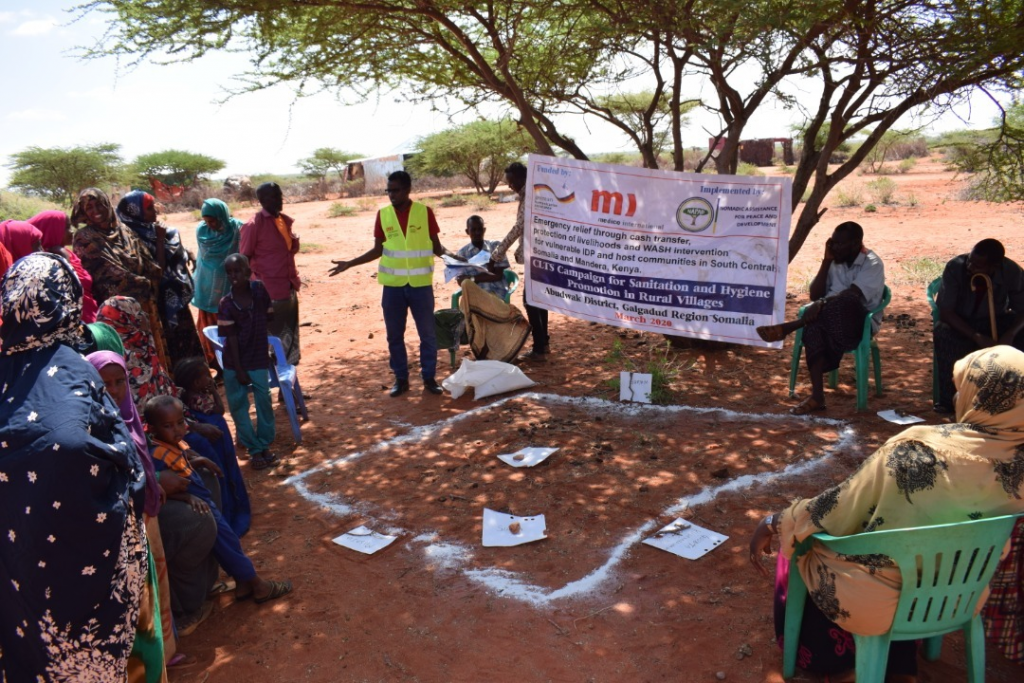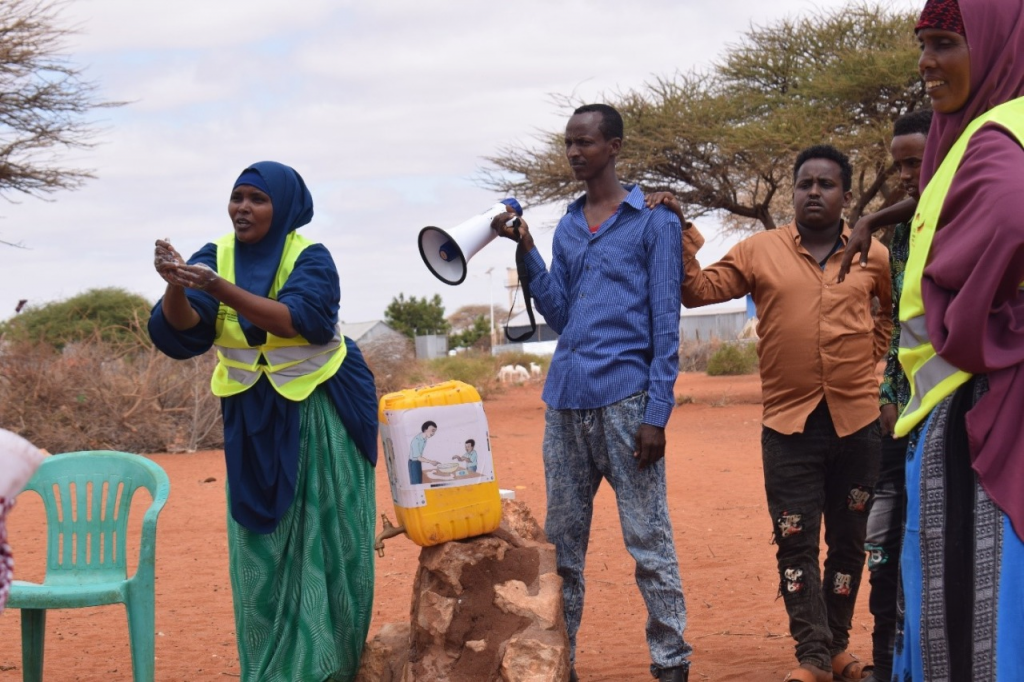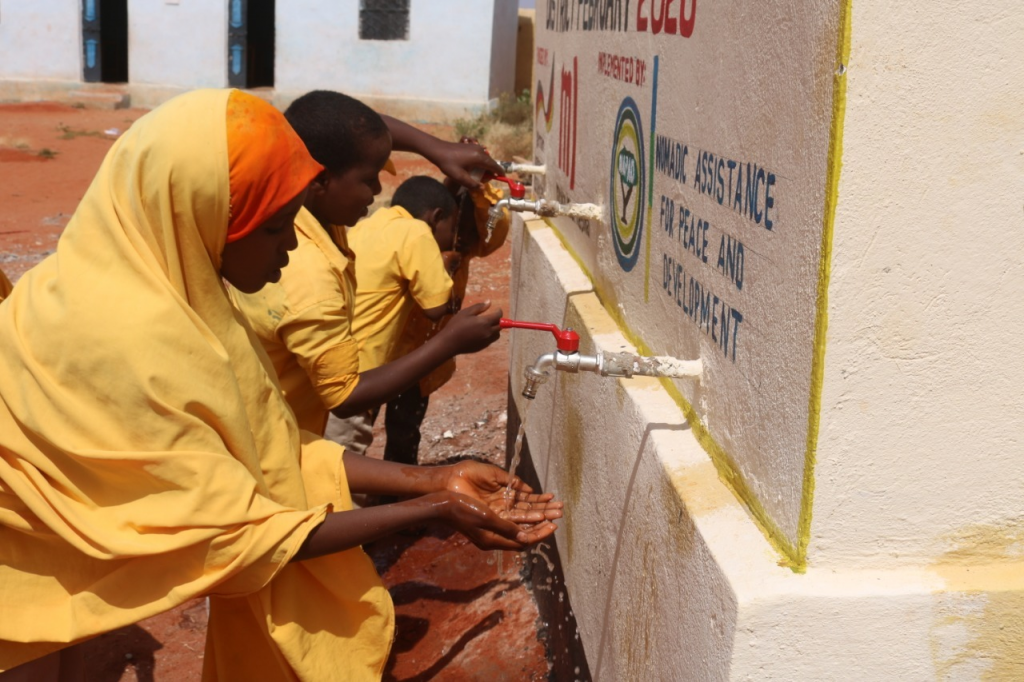To reduce water, sanitation and hygiene (WASH)-related diseases in IDP camps and Host communities in Somalia, NAPAD continues to support community behavioral change through participatory hygiene promotion campaigns and establishment of water storage and sanitation facilities such as latrines in at risk communities.

In March 2020, Nomadic Assistance for Peace and Development (NAPAD) in partnership Medico International with funding from German Federal Foreign Office intensified hygiene and sanitation awareness campaigns in Abduwak district, Somalia. Community-Led Total Sanitation (CLTS) triggering exercises, mobilized 240 Households in Herale, Inagabille, Dalsan and Labogalle to disseminate hygiene information that would encourage communities to eliminate open defecation through self-appraisal and analysis of open defecation and take action to become open defecation free. These sanitation and hygiene interventions are especially important in mitigating outbreak of Acute Watery Diarrhea (AWDs) and more importantly mitigate COVID-19 transmission in the community.

As of 11th of May, confirmed COVID 19 cases in Africa are 69,707 with 2,399 deaths reported. Currently, Somalia has reported 1205 active cases and 53 deaths. The increase in cases is largely due to community transmission largely perpetuated by lack of hygiene facilities and little or no information on proper hand washing for disease control. World Health Organization (WHO) has warned that if the virus transmission is not slowed down rapidly, the patient surge and increasing demand for health care will overwhelm the Somali’s fragile health system. Key to this prevention of transmission as recommended by WHO is the promotion of maintenance of general hygiene among community members.


In helping build Somalia’s Education, Health and Sanitation sector, NAPAD has also constructed Berkerds and Latrines fitted with hand-washing stations such as those at Amana Health Centre in Robday and Yamyam primary school. These facilities will ensure the most vulnerable, who include women and children have access to clean water.

The provision of safe water, sanitation and adequate hygiene (WASH) is essential to protecting human health during all infectious disease outbreaks. This will also build communities that are environmentally healthy and resilient in terms of managing environmental risks associated with sanitation and hygiene.
